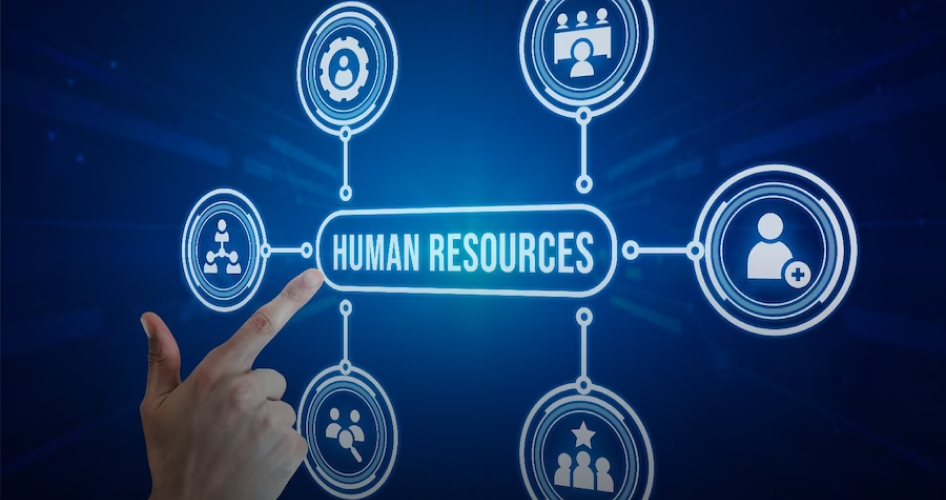In today’s fast-paced business environment, managing human resources efficiently is critical to organizational success. Human Resource Management Systems (HRMS), Payroll Software, Human Resource Information Systems (HRIS), and HR Management Software have become indispensable tools for streamlining HR processes, enhancing employee experiences, and ensuring compliance. This comprehensive guide explores these technologies, their features, benefits, and how they can transform your HR operations in 2025.
Related: The Best Internet Providers in South San Francisco for 2025: A Comprehensive Comparison
What Are HRMS, HRIS, and HR Management Software?
Before diving into the specifics, let’s clarify the terminology, as these terms are often used interchangeably but have subtle differences:
- HRIS (Human Resource Information System): A foundational system focused on storing and managing core employee data, such as personal details, payroll, benefits, and time tracking. It’s ideal for small businesses needing basic HR automation.
- HRMS (Human Resource Management System): An advanced platform that builds on HRIS capabilities, incorporating additional modules like recruiting, onboarding, performance management, and employee engagement. It’s suited for growing businesses looking to streamline the entire employee lifecycle.
- HCM (Human Capital Management): A strategic solution that includes HRMS features plus workforce planning, talent development, and analytics. It’s designed for large organizations aligning HR with long-term business goals.
- HR Management Software: A broad term encompassing HRIS, HRMS, and HCM, often used to describe any digital tool that automates HR tasks, from payroll to performance reviews.
- Payroll Software: A specialized tool or module within HRMS/HRIS that automates salary calculations, tax deductions, and compliance with labor laws. It can stand alone or integrate with broader HR systems.
In 2025, these systems are increasingly cloud-based, offering flexibility, scalability, and real-time data access, making them essential for businesses of all sizes.
Why Invest in HRMS and Payroll Software?
The modern workplace demands efficiency, compliance, and employee satisfaction. Here’s why HRMS and payroll software are game-changers:
1. Automation of Repetitive Tasks
Manual HR processes, such as payroll processing, attendance tracking, and onboarding, are time-consuming and error-prone. HRMS automates these tasks, reducing administrative burdens and allowing HR teams to focus on strategic initiatives like talent development. For example, platforms like Rippling enable multi-step tasks to be completed with a single click, saving hours of work.
2. Improved Compliance
Navigating labor laws, tax regulations, and compliance requirements is complex, especially for businesses operating globally. Payroll software ensures accurate tax calculations and adherence to local regulations, minimizing legal risks. Tools like Deel support payroll in over 150 countries, handling multiple currencies and compliance needs.
3. Enhanced Employee Experience
Modern HRMS platforms offer self-service portals where employees can update personal information, request time off, view payslips, and access benefits. This fosters autonomy and reduces HR’s workload. HiBob, for instance, integrates self-service with performance and engagement tools, boosting collaboration.
4. Data-Driven Decision Making
HRMS and HRIS provide advanced analytics and reporting, offering insights into workforce trends, employee performance, and resource allocation. Kissflow’s data-driven insights help managers make informed decisions, aligning HR with business objectives.
5. Cost Savings
By reducing manual errors and consolidating multiple HR functions into one platform, HRMS lowers administrative costs. Open-source solutions like Frappe HR eliminate per-user pricing, making them cost-effective for growing teams.
Key Features to Look for in HRMS and Payroll Software
When choosing HRMS or payroll software in 2025, prioritize features that align with your organization’s needs. Here are the top features to consider, based on recent trends:
1. Centralized Employee Database
A single source of truth for employee data, including work history, contact details, and compliance documents, simplifies HR management. Rippling’s HRIS offers granular access control, ensuring employees access only relevant data.
2. Payroll Automation
Look for software that automates salary calculations, tax deductions, and payslip generation. Integration with time-tracking ensures accurate wage calculations. Paycor, rated highly for small businesses, offers robust payroll features.
3. Time and Attendance Tracking
Automated tracking of working hours, leave requests, and schedules is essential for payroll accuracy and compliance. Omni HR’s time and attendance module adjusts for varying time zones, ideal for remote teams.
4. Recruitment and Onboarding
Streamline hiring with applicant tracking systems (ATS) and automated onboarding workflows. Kissflow’s ATS customizes recruitment processes, while Rippling organizes onboarding documents for efficiency.
5. Performance Management
Tools for goal setting, 360-degree feedback, and performance reviews enhance employee development. HiBob’s performance management module supports regular feedback and goal tracking.
6. Employee Engagement
Features like surveys, feedback loops, and recognition programs boost morale. Sage HR’s leave management and engagement tools create a positive work environment.
7. Integration Capabilities
Seamless integration with existing tools (e.g., ERP, accounting, or communication platforms) reduces manual data entry. Swingvy’s HRMS integrates with payroll and expense management for better workflow.
8. Scalability
Choose software that grows with your business. BambooHR’s modular design allows startups to add features as needed, making it ideal for small and medium-sized enterprises.
9. Mobile Accessibility
A mobile-friendly interface ensures employees and HR can access the system on the go. Frappe HR’s mobile app simplifies payroll and leave management.
10. Compliance Monitoring
Built-in compliance features track regulatory changes and ensure adherence to labor laws. Kakitangan, popular in Malaysia, ensures compliance with local regulations.
Top HRMS and Payroll Software Solutions in 2025
Based on recent insights, here are some leading HRMS and payroll software solutions to consider:
- Rippling: An all-in-one HRMS with fast setup, payroll automation, and IT integration. Ideal for businesses of all sizes, it simplifies admin tasks and compliance.
- BambooHR: A user-friendly HRIS for SMEs, offering payroll, time tracking, and employee engagement. It’s praised for its intuitive interface and scalability.
- Paycor: Best for small businesses, with strong payroll and core HR features. It’s highly rated for ease of use and customer support.
- Frappe HR: A 100% open-source HRMS with transparent pricing and customizable features. Perfect for cost-conscious organizations.
- HiBob: A versatile HRMS for startups and multinationals, focusing on engagement, performance, and customizable workflows.
- Deel: Specializes in global payroll and compliance, supporting remote and international teams across 150+ countries.
- Kissflow: Offers comprehensive HR modules, from ATS to performance reviews, with seamless third-party integrations.
- Kakitangan: A cloud-based HRMS for Malaysian SMEs, excelling in payroll, compliance, and employee self-service.
How to Choose the Right HRMS or Payroll Software
Selecting the right software depends on your organization’s size, industry, and priorities. Follow these steps to make an informed decision:
- Assess Your Needs: Identify pain points, such as manual payroll errors or inefficient onboarding. Determine must-have features like global payroll or performance tracking.
- Consider Scalability: Choose a system that can grow with your business. Startups may prefer BambooHR, while enterprises might opt for Workday.
- Evaluate Usability: An intuitive interface reduces training time. Request demos to test platforms like Sage HR or Rippling.
- Check Integration: Ensure compatibility with existing tools. Swingvy’s integrations with expense management are a good example.
- Review Pricing: Compare subscription costs, setup fees, and per-user pricing. Open-source options like Frappe HR can save costs.
- Read Reviews: Look for user feedback on platforms like Forbes Advisor or People Managing People to gauge reliability.
- Test the Software: Use free trials or demos to assess functionality. Matchr’s three-step process helps narrow down options quickly.
Trends Shaping HRMS and Payroll Software in 2025
The HR tech landscape is evolving rapidly. Here are key trends to watch:
- AI-Powered Automation: AI is enhancing HRMS with features like predictive analytics and chatbots. Remote’s AI-powered HRIS automates compliance and analytics.
- Remote Work Support: With hybrid work on the rise, HRMS platforms like Rippling accommodate flexible schedules and remote time tracking.
- Employee Wellness Focus: Tools for mental health support and engagement surveys are gaining traction. HiBob’s engagement features align with this trend.
- Global Compliance: As businesses expand internationally, platforms like Deel and SuccessFactors offer multi-country payroll and compliance.
- Voice-Enabled HR: Voice assistants, as seen in SkizzleHR’s suite, simplify HR tasks like leave requests.
Conclusion
In 2025, HRMS, payroll, HRIS, and HR management software are vital for optimizing HR processes, ensuring compliance, and enhancing employee experiences. By automating repetitive tasks, providing real-time analytics, and supporting remote work, these tools empower HR teams to focus on strategic goals. Whether you’re a startup needing BambooHR’s simplicity or a global enterprise requiring Deel’s compliance expertise, there’s a solution tailored to your needs.
Evaluate your requirements, test top platforms, and invest in software that scales with your business. With the right HRMS or payroll software, you’ll streamline operations, boost productivity, and create a workplace where employees thrive.
Related: Why Small Businesses Should Jump on the Private Cloud and Cloud Server Bandwagon


.png)



.jpg)

.jpg)
.png)





